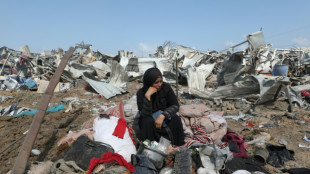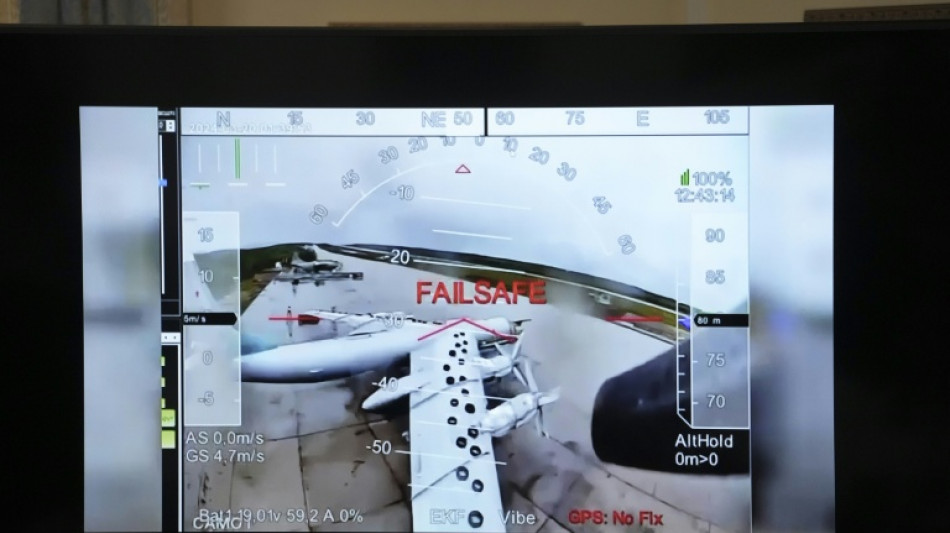
-
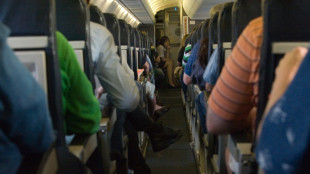 Bumpy skies: How climate change increases air turbulence
Bumpy skies: How climate change increases air turbulence
-
Chinese tiger, French berets and space cannons mark Gamescom 2025
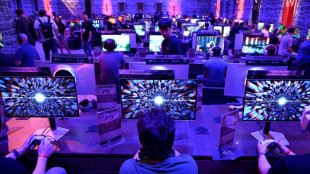
-
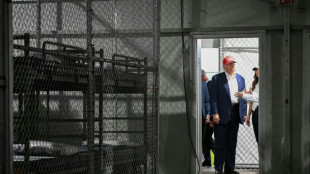 US judge orders dismantling of Trump's 'Alligator Alcatraz'
US judge orders dismantling of Trump's 'Alligator Alcatraz'
-
Evicted from their forests, Kenyan hunter-gatherers fight for their rights
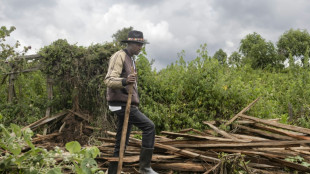
-
 Japan city proposes two-hour daily smartphone limit
Japan city proposes two-hour daily smartphone limit
-
A rise in the mountains as Vuelta a Espana cranks up the climbing

-
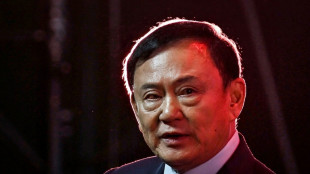 Thai ex-PM Thaksin acquitted of royal insult charges
Thai ex-PM Thaksin acquitted of royal insult charges
-
Japanese amateur boxer in intensive care after latest incident
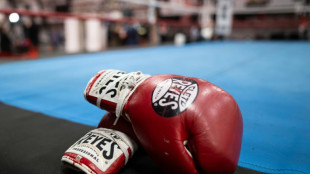
-
 US wine sellers left in limbo despite EU tariff deal
US wine sellers left in limbo despite EU tariff deal
-
Erik Menendez denied parole, decades after parents' murders

-
 Under Trump pressure, US Fed chief to walk tightrope in speech
Under Trump pressure, US Fed chief to walk tightrope in speech
-
Nvidia chief says H20 chip shipments to China not a security concern
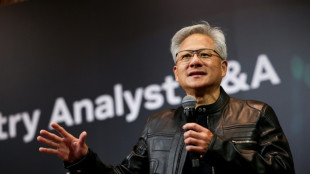
-
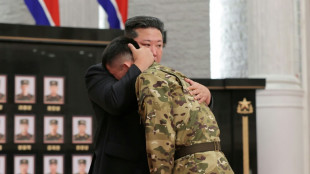 North Korea's Kim decorates troops who fought for Russia against Ukraine
North Korea's Kim decorates troops who fought for Russia against Ukraine
-
Two separate guerilla attacks kill 18 in Colombia
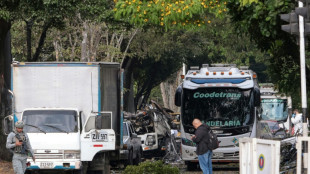
-
 Rice prices up 91 pct year-on-year in Japan
Rice prices up 91 pct year-on-year in Japan
-
Asian markets tick up as investors eye Jackson Hole meeting
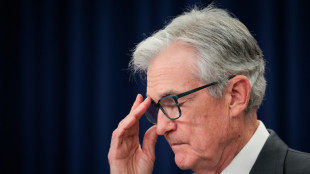
-
 De Bruyne leads Napoli's Serie A title defence as Lukaku injury causes concern
De Bruyne leads Napoli's Serie A title defence as Lukaku injury causes concern
-
Pollard, Albornoz hailed as key Rugby Championship clashes loom
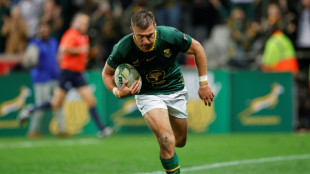
-
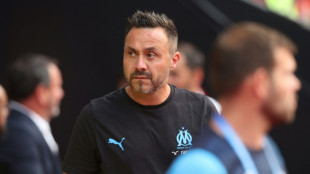 Marseille plunged into crisis with season just getting started
Marseille plunged into crisis with season just getting started
-
Pakistan woos old rival Bangladesh, as India watches on
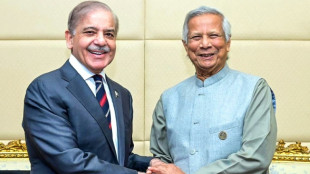
-
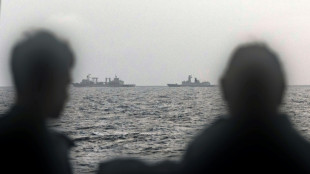 Documents show New Zealand unease over Chinese warships in South Pacific
Documents show New Zealand unease over Chinese warships in South Pacific
-
$346 mn US-Nigeria arms deal sets rights groups on edge
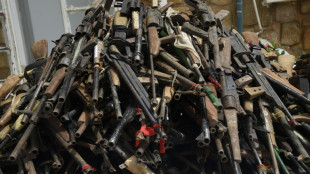
-
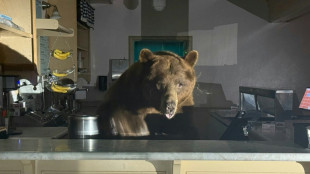 Got the scoop: Bear takes over California ice cream shop
Got the scoop: Bear takes over California ice cream shop
-
Rested but rusty Djokovic plots US Open ambush
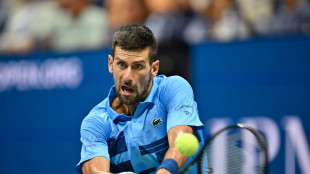
-
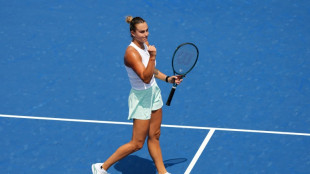 'Tough lessons' helping Sabalenka ahead of US Open defence
'Tough lessons' helping Sabalenka ahead of US Open defence
-
Meta makes huge cloud computing deal with Google: source

-
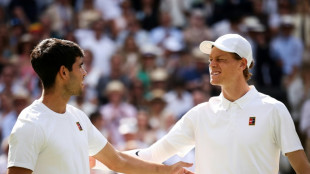 Blockbuster 'Sincaraz' rivalry ready to light up US Open
Blockbuster 'Sincaraz' rivalry ready to light up US Open
-
Less tax, more luxury: millionaires flock to Dubai
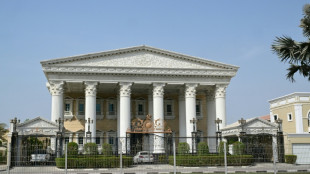
-
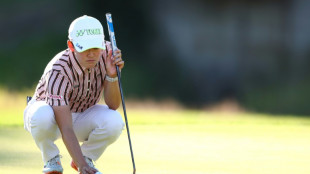 Akie Iwai leads, Canadian teen Deng in hunt at LPGA Canadian Open
Akie Iwai leads, Canadian teen Deng in hunt at LPGA Canadian Open
-
Chile, Argentina football fans trade blame over stadium violence
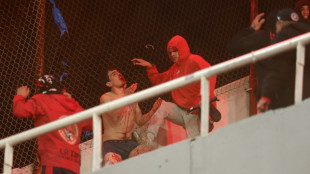
-
 Palestinian camps in Lebanon begin disarming
Palestinian camps in Lebanon begin disarming
-
Five dead as 'thunderous' bomb attack hits Colombian city
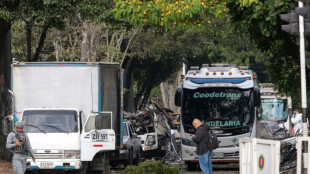
-
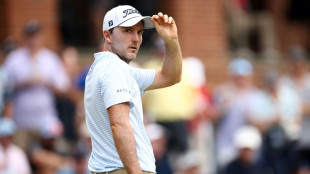 Henley leads PGA Tour Championship with Scheffler in pursuit
Henley leads PGA Tour Championship with Scheffler in pursuit
-
US Supreme Court allows cuts in NIH diversity research grants

-
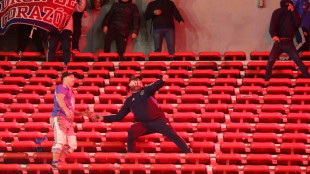 Why fan violence still sullies Latin American football
Why fan violence still sullies Latin American football
-
Lil Nas X arrested after nearly naked nighttime stroll in LA
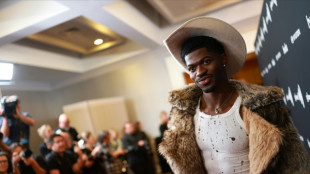
-
 Texas, California race to redraw electoral maps ahead of US midterms
Texas, California race to redraw electoral maps ahead of US midterms
-
US captain Zackary wants Eagles to soar against England in Women's Rugby World Cup opener
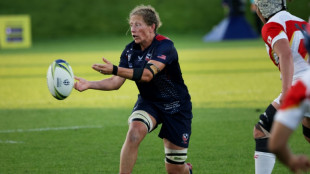
-
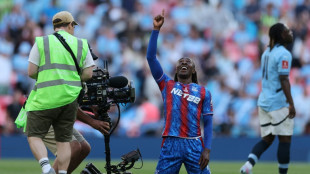 Palace's Eze on verge of Arsenal move as he misses European tie
Palace's Eze on verge of Arsenal move as he misses European tie
-
Google to provide Gemini AI tools to US government
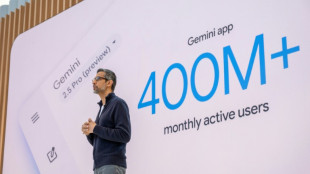
-
 Canada measles cases pass 4,500, highest count in Americas
Canada measles cases pass 4,500, highest count in Americas
-
'Underdog' Jefferson-Wooden shrugs off Tokyo worlds pressure

-
 England's Jones relishing 'special occasion' at Women's Rugby World Cup after tragic year
England's Jones relishing 'special occasion' at Women's Rugby World Cup after tragic year
-
Alcaraz, Djokovic on US Open collision course
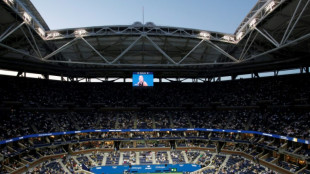
-
 US singer signs on for Russia's answer to Eurovision
US singer signs on for Russia's answer to Eurovision
-
Hundred-plus detained after fans 'lynched' during South America cup tie
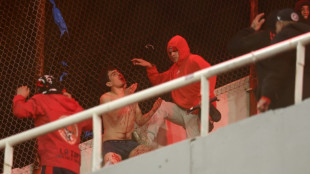
-
 Trump hails 'total victory' as US court quashes $464 mn civil penalty
Trump hails 'total victory' as US court quashes $464 mn civil penalty
-
Stocks waver ahead of Fed speech but EU tariff deal lifts Europe
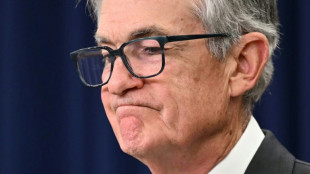
-
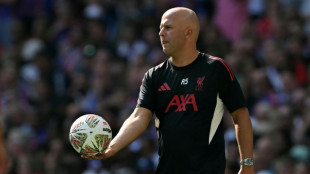 Slot says Liverpool will only sign right player at right price amid Isak row
Slot says Liverpool will only sign right player at right price amid Isak row
-
Walmart expects better sales, earnings as shoppers squeezed by tariffs


NATO learns as Ukraine's 'creativity' changes battlefield
Ukraine's "creativity", including its massive "Spider's web" drone attack deep inside Russia, holds profound lessons for Western militaries, the top NATO commander overseeing battlefield innovation told AFP.
"What the Ukrainians did in Russia was a Trojan horse -- and the trojan horse was thousands of years ago," French Admiral Pierre Vandier, NATO's Supreme Allied Commander Transformation, said in an interview.
"Today, we see this kind of tactic being reinvented by technical and industrial creativity."
Vandier said the operation showed how crucial innovation and adaptation were for victory, as modern warfare changes at lightning speed.
"It was a real coup."
"We are entering a dynamic era where armies must rely on both major planning but also adaptive planning," the navy commander said.
"We will witness continuous innovation where, week by week, month by month or year by year, we will be able to invent things we hadn't anticipated."
- 'Must act quickly' -
Faced with the Russian threat, NATO this week adopted new objectives for its defence capabilities to ensure it will be able to repel Moscow.
But Western intelligence agencies have warned that the Kremlin is reconstituting its forces at a pace far outstripping NATO and could be ready to attack the alliance in as little as four years.
"Time is truly a crucial parameter. We must act quickly," Vandier said.
The admiral, who previously commanded France's flagship Charles De Gaulle aircraft carrier, said NATO needed to amass the forces to dissuade any adversary from trying an attack.
"When you say 'I'm defending myself', you have the weapons to defend. When you say you deter, you have the weapons to deter," he said.
"That's what should prevent war -- making the adversary think: "Tomorrow morning, I won't win."
NATO countries under pressure from US President Donald Trump are expected to agree a major increase in their defence spending target at a summit in The Hague this month.
That should see a dramatic surge in spending on military hardware.
But if cheap Ukrainian drones can inflict billions of dollars in damage on Russian bombers, is it still worth investing in vastly expensive systems?
"No-one in the military sphere will tell you that we can do without what we'll call traditional equipment," Vandier said.
"However, we are certain we need new equipment to complement it."
Officials say that over 70 percent of battlefield casualties in Ukraine are caused by drones.
But while drones are indispensable in modern warfare, they are not omnipotent.
"Today, you won't cross the Atlantic with a 10-meter-long (33-foot-long) drone. You won't easily locate submarines with such tools," Vandier said.
"If they accompany your large platforms, you'll be able to achieve much better results at much lower costs."
- Integrating new technologies -
The admiral, who works out of NATO's US base in Norfolk, Virginia, said the major challenge was "integrating new technologies and new combat methods, based on what we've witnessed in Ukraine".
NATO and Ukraine have established a centre in Poland designed to help the alliance learn lessons from Russia's invasion of its neighbour.
Artificial Intelligence and robotics are also increasingly having an impact and are set to help reshape the battlefield.
"All modern armies will have piloted and non-piloted capabilities," Vandier said.
"It's much more efficient to deliver ammunition with a ground robot than with a squad of soldiers who could face a 155-millimeter (six-inch) shell."
This transformation of military capabilities within the alliance, which NATO aims to expand by at least 30 percent over coming years, will come at a significant cost, estimated in hundreds of billions of euros (dollars).
Vandier insisted that while the financial effort was "substantial" it was "fully realistic".
"Today, we have all the tools. We have the engineering. We have the expertise. We have the technology. So, we need to get started," he said.
V.Said--SF-PST

